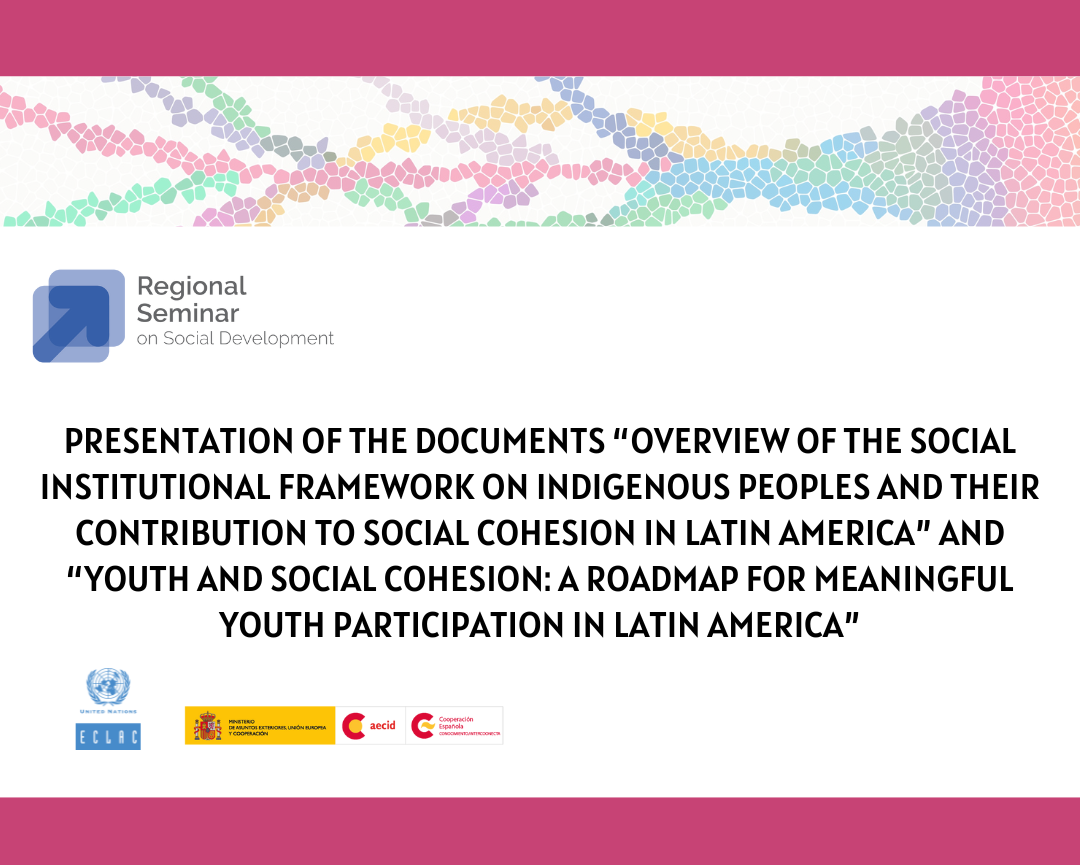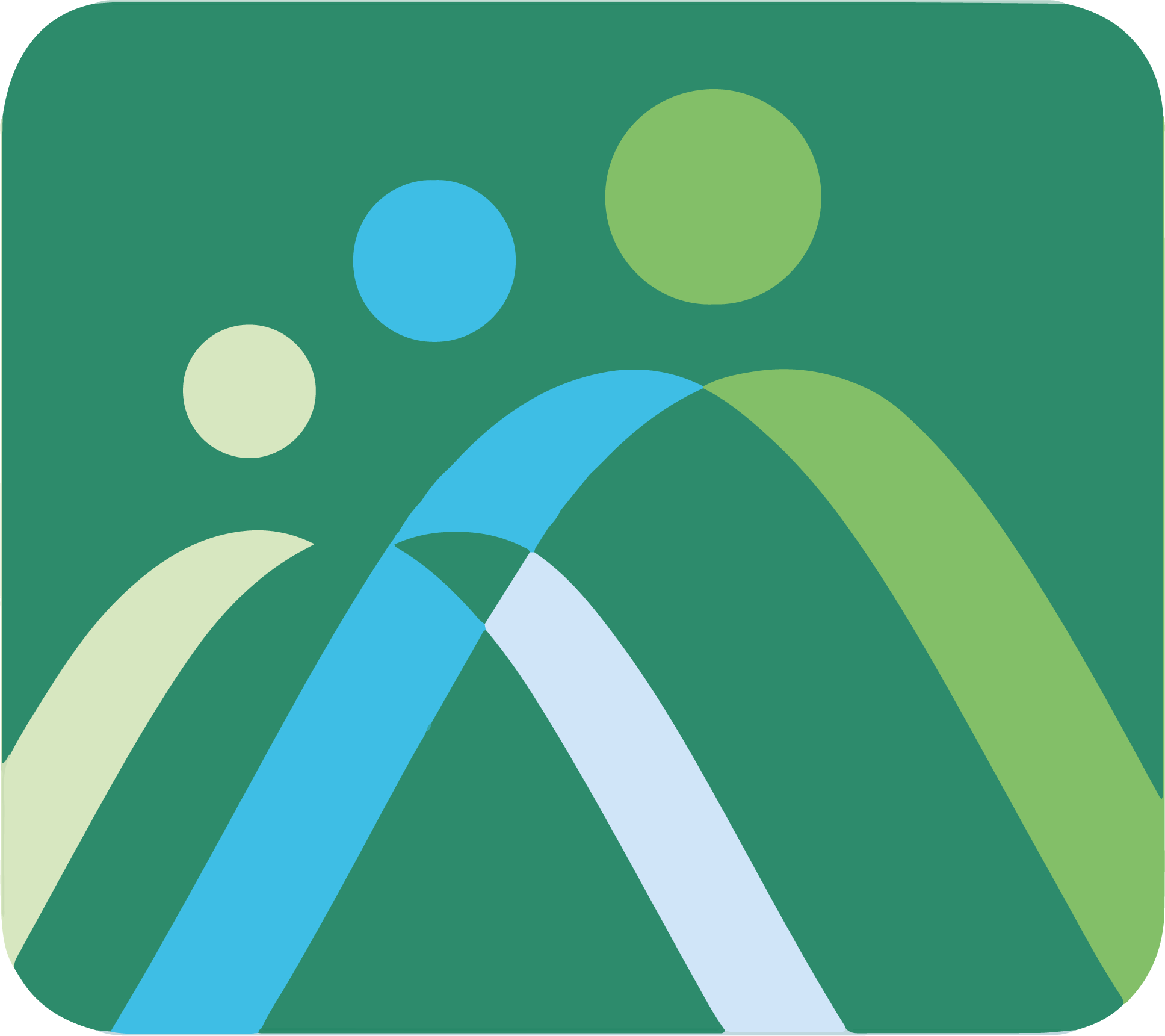Side event "Social Cohesion in Latin America: Social Institutions Regarding Indigenous Peoples and Meaningful Youth Participation"
Work area(s)
Teaser
At this event, two documents will be presented that address crucial aspects of social cohesion in the region: the institutional framework of indigenous peoples and the effective participation of young people. The aim is to open a discussion on the state of social cohesion in the region within the framework of the project. To this end, a discussion panel will review the findings of both documents, building connections between them and identifying key challenges for social cohesion.
Event information

Date
25 Jun 2025, 13:00 - 14:30Event type
BACKGROUND
Latin America faces a complex landscape of uncertainties, cascading crises, and challenges to the sustainability of its societies. These challenges are embodied in three “traps” that hinder the achievement of inclusive social development in the region: i) low economic growth or limited capacity to grow; ii) high inequality and low social mobility; and iii) weak institutional capacity and ineffective governance (Salazar-Xirinachs, 2024). In this context, social cohesion takes on a central role in the countries’ path toward sustainable development that leaves no one behind.
Since 2018, ECLAC, together with the Training Center of Spanish Cooperation in Santa Cruz, Plurinational State of Bolivia (CFCSZ), has been working to advance the analysis and discussion of social cohesion in the region. This has been carried out within the framework of the Knowledge for Development Projects: “Analysis of inclusion and social cohesion in Latin America and the Caribbean in light of the social pillar of the 2030 Agenda” (2018–2022) and “Social cohesion policies for inclusive social development in Latin America: monitoring, challenges, and opportunities in a context of uncertainties” (2023–2025). The objective of the ongoing project is to position and promote social cohesion within the region's social and public policy agenda, and to follow up on the analytical, measurement, and policy frameworks for social cohesion in Latin America. At the heart of this discussion lies one of the greatest challenges to social cohesion: social inclusion and the sense of belonging among the diverse and unequal populations that make up Latin American societies (Maldonado et al., 2021), with Indigenous Peoples and young people being especially relevant groups.
The design and implementation of effective, efficient, and transparent public policies require a solid foundation of social institutions (ECLAC, 2023). In this regard, institutional frameworks for Indigenous Peoples in Latin America are of particular interest due to the historically higher levels of vulnerability, poverty, and marginalization faced by this population group. The study “Panorama of Social Institutional Framework for Indigenous Peoples and their Contribution to Social Cohesion in Latin America” analyzes the four institutional dimensions proposed by ECLAC: i) legal-normative, ii) organizational, iii) technical-operational, and iv) financial. It highlights progress such as constitutional recognition, the creation of leading institutions, and participation mechanisms, as well as persistent gaps in resource access and territorial protection.
In the same vein, the document “Youth and Social Cohesion: A Roadmap for their Meaningful Participation in Latin America” analyzes the gaps and challenges that youth in Latin America face in achieving genuine participation in decision-making processes, highlighting their fundamental role in strengthening social cohesion. The study reveals that although young people have historically driven major social transformations, structural barriers continue to hinder their effective participation, including adultcentrism, lack of inclusive institutional mechanisms, and unequal access to decision-making spaces. These barriers contribute to widespread distrust in institutions and governments in the region, which in turn discourages participation. From an intersectional perspective, the study calls for public policies that recognize youth diversity and promote their involvement in building inclusive and resilient societies, thereby contributing to the achievement of the 2030 Agenda and the region’s sustainable development.
Objective:
Building on the central focus of the 5th Regional Seminar on Social Development, which centers on inequality, the objective of this side event is to present two documents addressing crucial aspects of social cohesion in the region: the institutional frameworks for Indigenous Peoples and the effective participation of young people. The event aims to open a discussion on the current state of social cohesion in the region within the framework of the ongoing project. A discussion panel will comment on the findings of both documents, draw connections between them, and identify priority challenges for strengthening social cohesion.
Practical information
Room Enrique Iglesias -CEPAL
Schedule
Moderator: Carlos Maldonado Valera, Social Affairs Officer, Social Development Division, ECLAC
13:00-13:10 Welcome remarks
- Alberto Arenas de Mesa, Director of the Social Development Division, ECLAC
- Diego Spottorno, Technical Advisor for the Andean and Southern Cone Countries Unit, AECID
13:10-13:30 Presentation of the document “Panorama de la institucionalidad social sobre los Pueblos Indígenas y su aporte a la cohesión social en América Latina”
- Ana María Oyarce, Consultant, ECLAC
13:30-13:50 Presentation of the document “Youth and Social Cohesion: a roadmap for the meaningful participation of young people in Latin America”
- Natacha Leroy, Consultant, Social Development Division, ECLAC
- Felipe Mahaluf, Consultant, Social Development Division, ECLAC
13:50-14:20 Roundtable discussion
- Ernesto Marconi, International Consultant. Indigenous Cooperation Initiative Program - ICI, Fund for the Development of Indigenous Peoples of Latin America and the Caribbean, FILAC
- Rolando Pelicot, Project Manager at Global Shapers Community and member of Resolution Project, an NGO focused on empowering youth leadership
- Emmanuelle Barozet, Senior Researcher at the Center for the Study of Conflict and Social Cohesion (COES)
14:20-14:30 Closing and Concluding Remarks
- Carlos Maldonado Valera, Social Affairs Officer, Social Development Division, ECLAC

